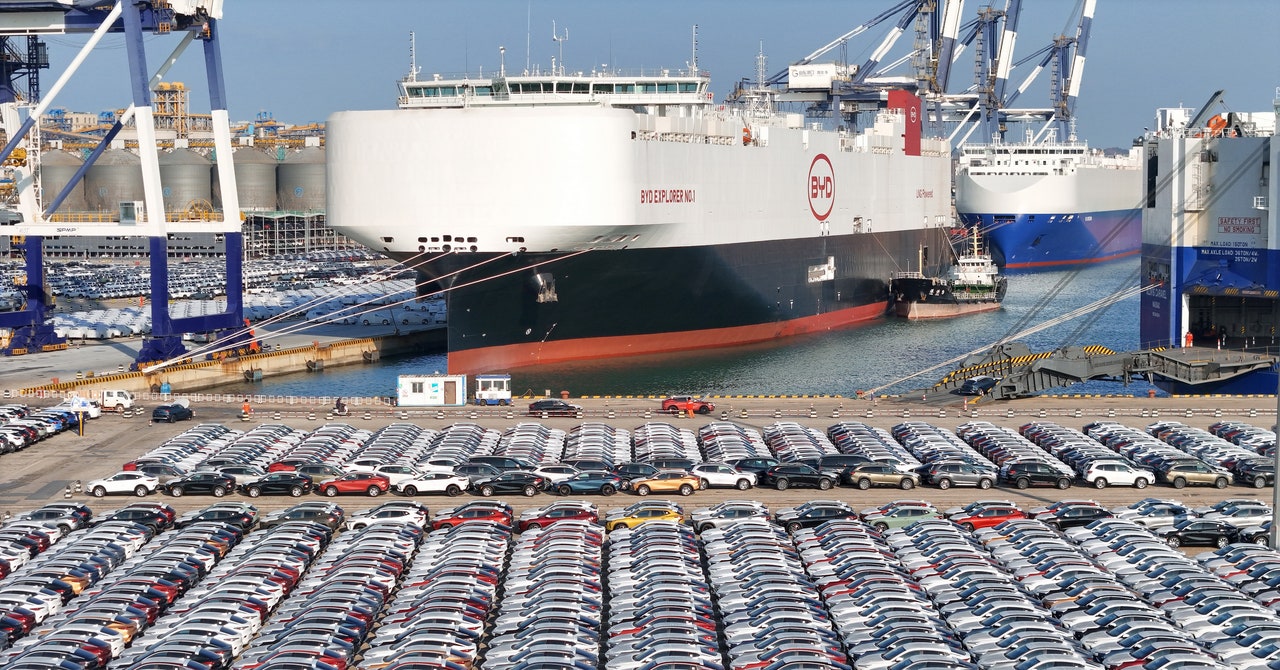- cross-posted to:
- economy
- world
- [email protected]
- cross-posted to:
- economy
- world
- [email protected]
China has positioned itself as the main car supplier in Mexico, with exports reaching $4.6 billion in 2023, according to data from Mexico’s Secretariat of Economy.
The Chinese automaker BYD surpassed Honda and Nissan to position itself as the seventh largest automaker in the world by number of units sold during the April to June quarter. This growth was driven by increased demand for its affordable electric vehicles, according to data from automakers and research firm MarkLines.
The company’s new vehicle sales rose 40 percent year over year to 980,000 units in the quarter—the same quarter wherein most major automakers, including Toyota and Volkswagen, experienced a decline in sales. Much of BYD’s growth is attributed to its overseas sales, which nearly tripled in the past year to 105,000 units. Now BYD is considering locating its new auto plant in three Mexican states: Durango, Jalisco, and Nuevo Leon.
Foreign investment would be an economic boost for Mexico. The company has claimed that a plant there would create about 10,000 jobs. A Tesla competitor, BYD markets its Dolphin Mini model in Mexico for about 398,800 pesos—about $21,300 dollars—a little more than half the price of the cheapest Tesla model.
…
That tariff-free access is part of the US-Mexico-Canada Agreement (T-MEC), an updated version of the North American Free Trade Agreement that, as of 2018, eliminated tariffs on many products traded between the North American countries. Under the treaty, if a foreign automotive company that manufactures vehicles in Canada or Mexico can demonstrate that the materials used are locally sourced, its products can be exported to the United States virtually duty-free.
MAGA strikes again



That does not look particularly restrictive to me.
The methods by which “total value” are calculated for country of origin leave open the possibility of building out capital with overseas resources and expertise. This has been the end-run around a host of tariff and trade provisions. You do all the hard bits of engineering abroad and then do the raw assembly of parts just on the other side of the border.
USMCA countries become a backdoor that provide for the evasion of a whole host of trade restrictions.
How Chinese firms are using Mexico as a backdoor to the US
Anywhere the US has friendly trade relations gets this same treatment. Mexico is simply ground zero because of its proximity to the lucrative Texas and California retail centers.
You’re just repeating what I just said.
If you don’t like free trade, don’t make free trade agreements. You’re actually on Team Trump on this one, he’s the one who wanted NAFTA gone. “This is the worst trade deal ever made, maybe ever”
The conflict is between the ostensible geopolitical tension between the US and China and the domestic hunger for cheap imports that force American trade negotiators to simply look the other way when presented with these giant loopholes.
It isn’t whether we like or don’t like international trade (we clearly love it, as an economic policy). Its the confusion between stated policies (No Chinese Imports! They’re bad for the economy!) and functional policies (Launder these same vehicles through Mexico and they’re good again!)
Its hardly as though Trump is alone in his hostility towards Chinese trade. Biden’s been at least as enthusiastic. But these foreign policy positions are all smoke and mirrors. They’re intended to justify military spending in a looming second Cold War, not economic protectionism that might drive up domestic inflation rates.
Big move from “MAGA strikes again”
Biden wasn’t in office in 2018. That’s the tricky bit.
Ok? Kinda weird to blame the guy who moved things in the direction you want for things that happened under the guy that wants the same thing.
Or you could just stop the contortionism and admit you didn’t know shit and you just wanted to blame him for something.
Which direction is that? Do you even know?
Get back in your Cybertruck and drive away
Nah, I’ll drive an affordable small EV.